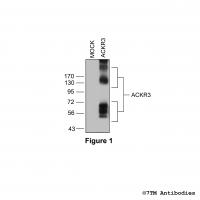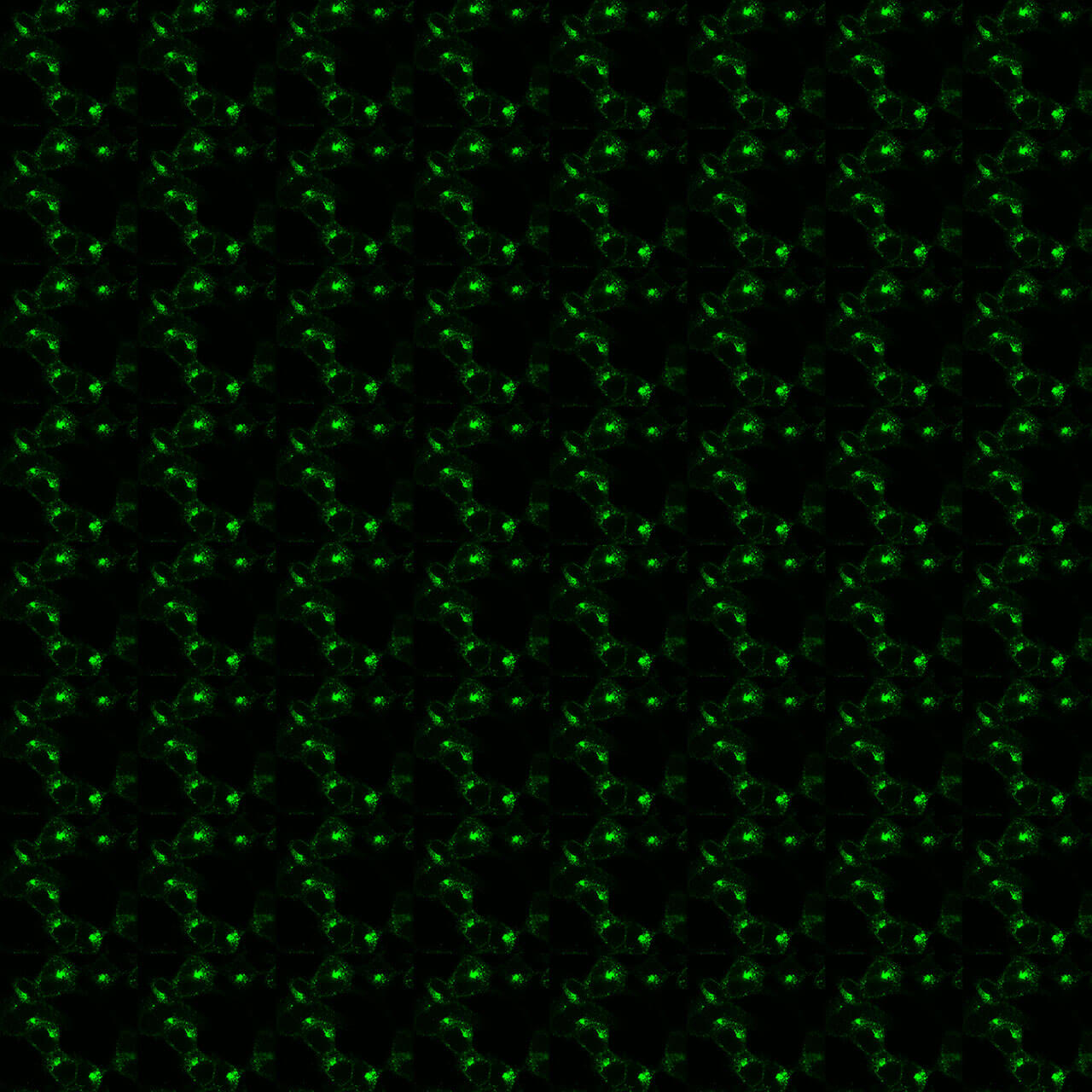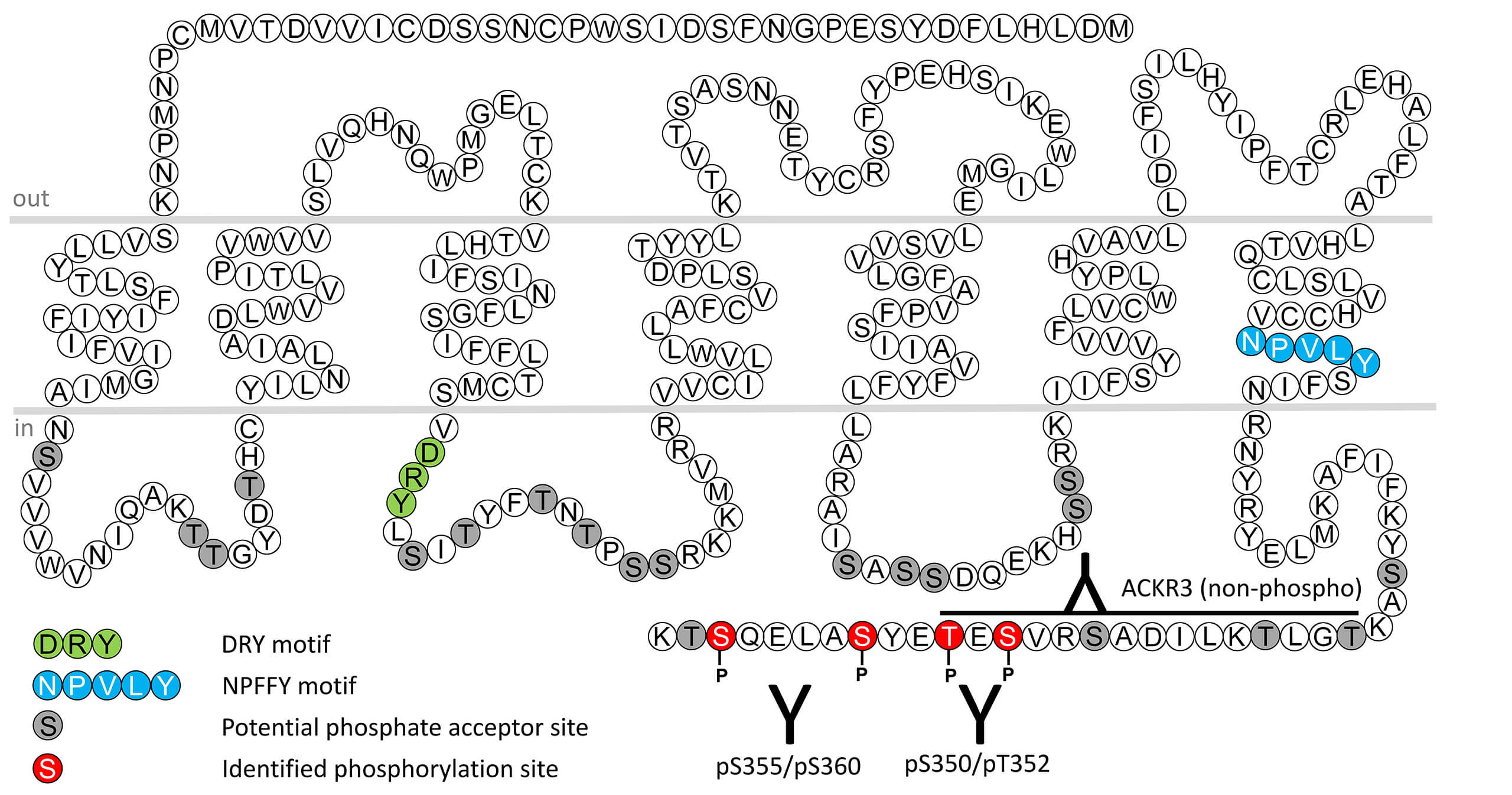No results were found for the filter!
Citations
 ACKR3 (non-phos, C-Term), Atypical Chemokine...
ACKR3 (non-phos, C-Term), Atypical Chemokine... The non-phospho-ACKR3 receptor antibody is directed against the carboxyl-terminal tail of mouse, rat and human ACKR3/CXCR7. It can be used to detect total ACKR3 receptors in Western blots independent of phosphorylation. The...
$ 300.00 *
Citations
 pS350/pT352-ACKR3 (phospho-Atypical Chemokine...
pS350/pT352-ACKR3 (phospho-Atypical Chemokine... Serine350/Threonine352 (S350/T352) is major phosphorylation site of the Atypical Chemokine Receptor 3 (ACKR3, previously called CXCR7). The pS350/pT352-ACKR3 antibody detects phosphorylation in response to agonists and after PKC...
$ 375.00 *
NEW
 ACKR3 (non-phos, N-Term), Atypical Chemokine...
ACKR3 (non-phos, N-Term), Atypical Chemokine... The non-phospho-ACKR3 receptor antibody is directed against the amino-terminal tail of mouse, rat and human ACKR3/CXCR7. It can be used to detect total ACKR3 receptors in Western blots independent of phosphorylation. The...
$ 300.00 *
NEW
 pS355/pS360-ACKR3 (phospho-Atypical Chemokine...
pS355/pS360-ACKR3 (phospho-Atypical Chemokine... Serine355/Serine360 (S355/S360) is major phosphorylation site of the Atypical Chemokine Receptor 3 (ACKR3, previously called CXCR7). The pS355/pS360-ACKR3 antibody detects phosphorylation in response to agonists. S355/S360...
$ 375.00 *
SAMPLE PACK
 ACKR3 Sample Pack (phospho- and...
ACKR3 Sample Pack (phospho- and... ACKR3 Sample Pack consisting of all four available phospho- and non-phospho-Atypical Chemokine Receptor 3 Antibodies 4 x 20 µL trial size each. Specifically, this sample pack contains the following antibodies pS350/pT352-ACKR3...
$ 300.00 *
Recently viewed


